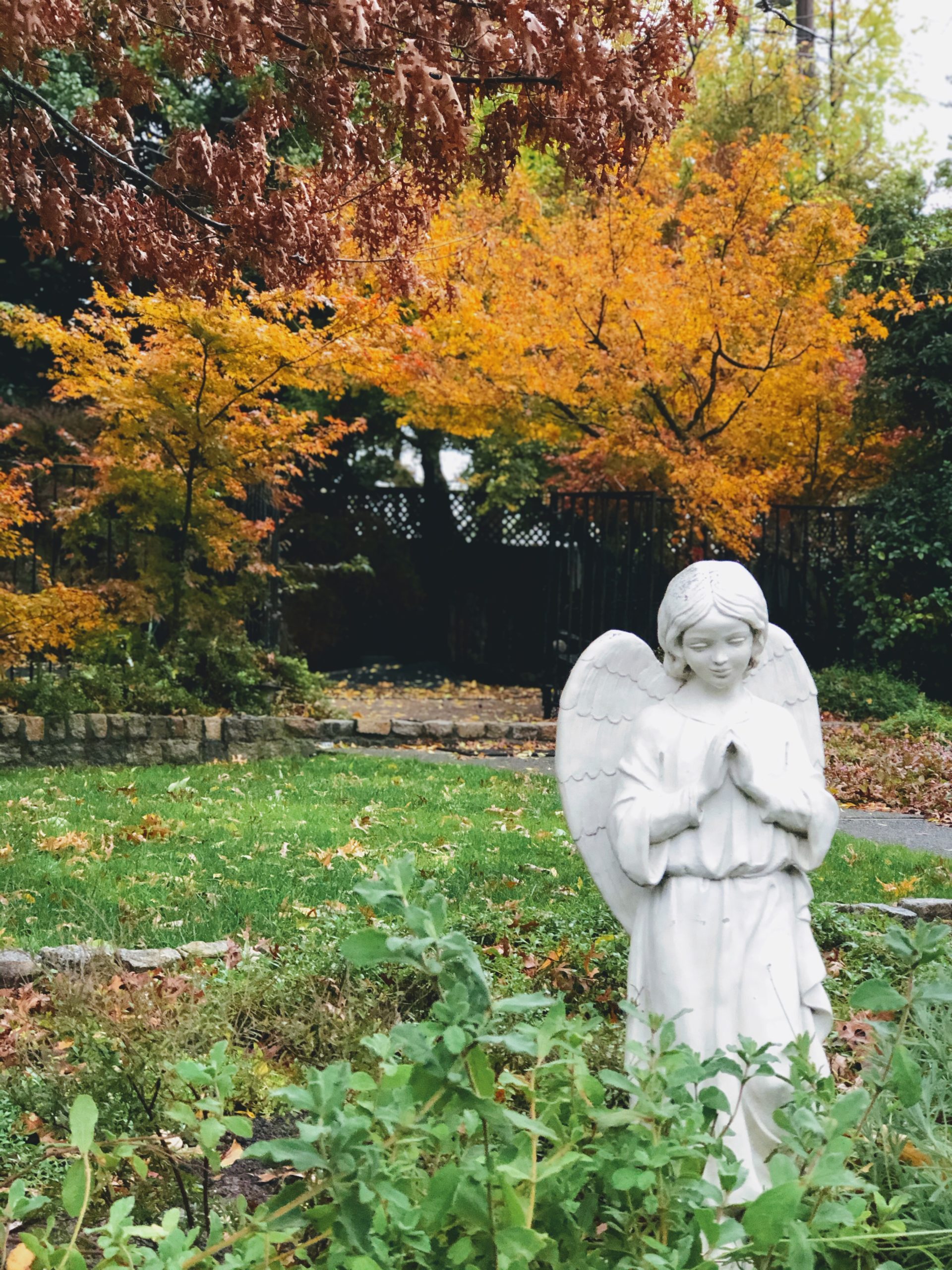The season of advent started today in the Christian church. It’s the new year, liturgically, and here’s how I rang it in so far: I drove my boyfriend to the airport in a long pre-dawn dark that my body couldn’t decipher from bedtime. Hours later, I went with my parents to their church in Sacramento in a blustery atmospheric river that festooned the streets with bright-yellow leaves in deep gutter puddles. Now it’s not quite five, a roast is in progress, family is coming over, and night is already falling.

It’s all extremely cozy, for me, but for so many without easy access to comfort, it’s simply dark and wet and cold. Some of our ancestors were rather direct about this fact:
The most amusing difference between Irish and Scottish Gaelic is definitely in the words for December: Mí na Nollag (Month of Christmas) in Ireland, and An Dubhlachd (the Blackness) in Scotland.
— Pádraig Durnin #ucustrikesback #stopcasualisation (@padraigfd) December 1, 2019
Advent is that blackness. It’s the waiting, the longing for something. Advent will end with the incarnation on Christmas Day. In the meantime, for many centuries it’s been a time of darkness, and reflection, and sobriety, and even a fair dose of sadness.
But just like the apocalypse we were recently reminded of, this isn’t just about a one-time event on a religious timeline. Waiting is a recurring season in our lives. Waiting for medical news, resolution to a quarrel, feedback from a job interview, a grade on a math assignment, a pot to boil, the alarm to go off, spring to come, the next season of The Crown to be released. And just like December nights in northern latitudes, all this waiting can feel so long.
And, being human, we’d rather…not.
Advent, therefore, becomes time for Christmas carols, which the dour keepers of church time remind us is terribly premature. Advent is time for displays of Christmas excess of all kinds, electrical and musical and commercial and gastronomical and sartorial, which begin basically in October and come down with a disgusted, ashamed crash precisely on December 26th (when the dour timekeepers, looking rather pleased with themselves, are settling into their mere second day of Christmas).
We can’t tolerate the wait, whether it’s for Christmas or anything. We would do anything to avoid the cold and dark, and the uncertainty.
On Wednesday, we drove to my grandma’s house (happy birthday, by the way!) to celebrate Thanksgiving. But a precursor to today’s storm tore through the area, and the power was out from lunchtime until long after bedtime, while the wind lashed and buckled the windows, and the rain and hail made it hard to hear each other speak. We sat and ate and played cards by candlelight, ate soup warmed by the gas stove (#blessed), and let our phones die.
It felt like such a long wait, even though precisely none of my actual needs, or even really my desires, were impacted. With our dying phone batteries and cell data we refreshed the PG&E outage page for updates on the repairs. And then the indicator lights all blinked on at 2:30 am, and immediately, normality resumed. The waiting was entirely forgotten.
“Why not now?”
This question has been orbiting me lately, articulated in a few different ways. I’m waiting on a few things, myself, all of which (I’m continually disappointed to realize) are my own responsibility to create. So, why not now?
The answer within comes quietly: “because it’s not yet time.”
As the wonderful Henri Nouwen wrote:
So, for us and many people, waiting is a dry desert between were we are and where we want to be. We do not enjoy such a place. We want to move out of it and so something worthwhile. Dear Lord, help me be patient as I await your arrival.
Pingback: Still sun | PsychoPomp